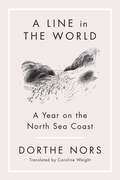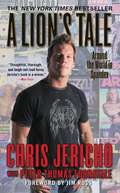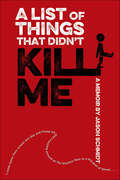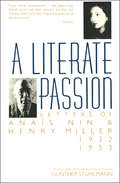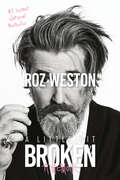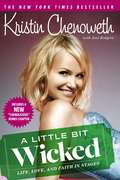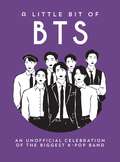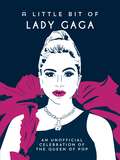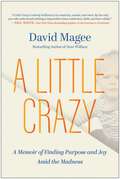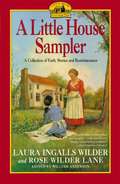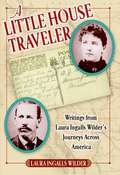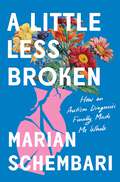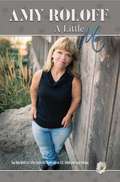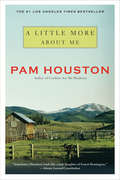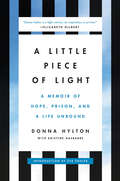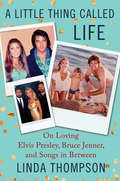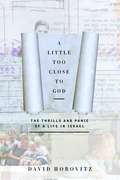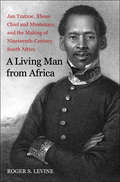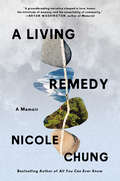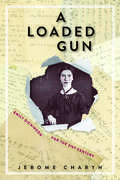- Table View
- List View
A Line in the World: A Year on the North Sea Coast
by Dorthe NorsA celebrated Danish writer explores the unsung histories and geographies of her beloved slice of the world. Me, my notebook and my love of the wild and desolate. I wanted to do the opposite of what was expected of me. It’s a recurring pattern in my life. An instinct. Dorthe Nors’s first nonfiction book chronicles a year she spent traveling along the North Sea coast—from Skagen at the northern tip of Denmark to the Frisian Islands in the Wadden Sea. In fourteen expansive essays, Nors traces the history, geography, and culture of the places she visits while reflecting on her childhood and her family and ancestors’ ties to the region as well as her decision to move there from Copenhagen. She writes about the ritual burning of witch effigies on Midsummer’s Eve; the environmental activist who opposed a chemical factory in the 1950s; the quiet fishing villages that surfers transformed into an area known as Cold Hawaii starting in the 1970s. She connects wind turbines to Viking ships, thirteenth-century church frescoes to her mother’s unrealized dreams. She describes strong waves, sand drifts, storm surges, shipwrecks, and other instances of nature asserting its power over human attempts to ignore or control it. Through a deep, personal engagement with this singular landscape, A Line in the World accesses the universal. Its ultimate subjects are civilization, belonging, and change: changes within one person’s life, changes occurring in various communities today, and change as the only constant of life on Earth.
A Lion's Tale: Around the World in Spandex
by Chris Jericho Pete FornataleChris Jericho is the first undisputed Heavyweight Champion of the WWE and WCW, and has been called one of the fifty greatest wrestlers of all time. Now retired, he is writing his memoir, telling the story of his journey from wrestling school in Canada to his time in leagues in Mexico and Japan to his big break in the WCW. He'll dish the dirt on how he worked his way through the ranks alongside major wrestling stars like Chris Benoit and Lance Storm to become a major superstar.
A Lion's Tale: Around the World in Spandex
by Chris JerichoThe controversial story of Chris Jericho, the former undisputed Heavyweight Champion of WWE.From the age of eight, Chris dreamed of becoming a wrestler. But it wasn't until he was 25 that he hit the big time. Nicknamed 'Lion Heart', Chris eventually attained his ultimate goal - joining the WWF (now WWE). He became one of their biggest stars, even defeating wrestling powerhouses The Rock and 'Stone Cold' Steve Austin in the same night to be crowned the undisputed Heavyweight Champion.Now Chris dishes the dirt on his rivalries with other wrestling legends. Whether ripped-off by promoters, robbed at gunpoint or nearly paralysed after landing on his head during a match, Chris maintained his courage, determination and sense of humour about this dangerous and enthralling sport.
A List of Things That Didn't Kill Me: A Memoir
by Jason SchmidtJason Schmidt wasn't surprised when he came home one day during his junior year of high school and found his father, Mark, crawling around in a giant pool of blood. Things like that had been happening a lot since Mark had been diagnosed with HIV, three years earlier.Jason's life with Mark was full of secrets—about drugs, crime, and sex. If the straights—people with normal lives—ever found out any of those secrets, the police would come. Jason's home would be torn apart. So the rule, since Jason had been in preschool, was never to tell the straights anything. A List of Things That Didn't Kill Me is a funny, disturbing memoir full of brutal insights and unexpected wit that explores the question: How do you find your moral center in a world that doesn't seem to have one?
A Literate Passion: Letters of Anaïs Nin & Henry Miller: 1932–1953
by Henry Miller Anaïs NinA &“lyrical, impassioned&” document of the intimate relationship between the two authors that was first disclosed in Henry and June (Booklist). This exchange of letters between the two controversial writers—Anaïs Nin, renowned for her candid and personal diaries, and Henry Miller, author of Tropic of Cancer—paints a portrait of more than two decades in their complex relationship as it moves through periods of passion, friendship, estrangement, and reconciliation. &“The letters may disturb some with their intimacy, but they will impress others with their fragrant expression of devotion to art.&” —Booklist &“A portrait of Miller and Nin more rounded than any previously provided by critics, friends, and biographers.&” —Chicago Tribune Edited and with an introduction by Gunther Stuhlmann
A Little Bit Broken: A Memoir
by Roz WestonIt never gets better, but it does get easier. That's the first thing Roz says to anyone who asks him for advice. Anyone who's fighting like hell, just hanging on or putting the pieces back together. When you're broken, fixed becomes an obsession. Roz is a multi-platform entertainer and storyteller who hosts three shows a day and sleeps five hours a night. On The Roz & Mocha Show, ET Canada Live and Entertainment Tonight Canada Roz built an audience and turned them into family. But as with most families, there is just some shit we don't talk about. From growing up in a small town to getting lost, drunk and terrified in New York while interning for The Howard Stern Show; from finding comfort in the arms and beds of strangers to kicking an opioid addiction he didn't know he had; from broken bones to broken hearts and a broken marriage. From navigating grief and guilt following the devastating loss of his father to persevering in the face of an ongoing and private battle with his own body. All is shared in Roz's disarming signature blend of blunt truth and humour. A Little Bit Broken is a deeply personal and inspiring account of self-forgiveness, redemption and recovering from bad choices—because let's face it, the reason we make bad choices is that they usually feel really good. And Roz has made them all. "This book is the whole story I've never shared before. . . . This is the shit we don&’t talk about. Welcome to the family."
A Little Bit Wicked
by Joni Rodgers Kristin ChenowethA lively, laugh-out-loud journey from Oklahoma beauty queen to show biz sensation."Life's too short. I'm not."You might know her as a Tony Award-winning Broadway star who originated the role of Galinda the Good Witch in the smash musical Wicked. Or you may recognize her from her starring roles on TV--The West Wing, Pushing Daisies, and Sesame Street. At four foot eleven, Kristin Chenoweth is an immense talent in a petite but powerful package. Through a combination of talent, hard work, and (she's quick to add) the grace of God, Kristin took Broadway and Hollywood by storm. But of course, into every storm, the occasional drizzle of disaster must fall, and Kristin reflects on how faith and family have kept her grounded, even in tough times.Filled with wit, wisdom, and backstage insight, A Little Bit Wicked is long on love and short on sleep. It's essential reading for Kristin's legions of fans and an uplifting story for anyone seeking motivation to follow his or her dreams--over the rainbow and beyond.FEATURING CHENOLICIOUS RECIPES, KRISTIN'S ADVICE FOR YOUNG ACTORS, AND MUCH MORE!
A Little Bit of BTS: An Unofficial Celebration of the Biggest K-Pop Band
by Summersdale PublishersStep into the magic shop of BTS and follow them into this delightful book of meaningful quotes, stan-level facts and in-depth trivia for any diehard ARMY. Known for their dynamite stage presence, smooth-like-butter dancing skills and angelic voices, BTS are a K-pop boyband with a message of self-love at the heart of their music.
A Little Bit of Lady Gaga: An Unofficial Celebration of the Queen of Pop
by Summersdale PublishersPut your paws up for this show-stopping little book of inspiring quotes, incredible trivia and iconic facts about the one and only Lady GagaEver since her noughties debut, it's been clear a star was born! Pioneering, profound and outrageous in equal measure, Lady Gaga has stunned the world with her spectacular artistry and musicality, and she remains an empowering role model for Little Monsters everywhere.A Little Bit of Lady Gaga is a celebration of this queen of pop and the perfect gift for fans, taking you on a journey filled with: - Inspiring quotes on self-love, life and following your dreams - Lesser-known facts about her music, career and philosophy - Ultimate trivia to test your knowledge of Mother MonsterWhether you've been applauding from the beginning or you're just dancing for the first time, this book will give you a million reasons to love Lady Gaga even more. We were born this way!
A Little Bit of Taylor Swift: An Unofficial Celebration of a Modern Icon
by Summersdale PublishersBringing together inspiring quotes, superfan-level facts and a treasure trove of trivia, this little book is your backstage pass to the enchanting world of Taylor Swift. This heartfelt homage to Taylor, her fans and our enduring love story will make the perfect gift for any Swiftie.
A Little Bit of Taylor Swift: An Unofficial Celebration of a Modern Icon
by Summersdale PublishersBringing together inspiring quotes, superfan-level facts and a treasure trove of trivia, this little book is your backstage pass to the enchanting world of Taylor Swift. This heartfelt homage to Taylor, her fans and our enduring love story will make the perfect gift for any Swiftie.
A Little Closer to Home: How I Found the Calm After the Storm
by Ginger ZeeIn Ginger Zee's follow-up to the bestselling Natural Disaster, the ABC chief meteorologist takes readers on a much deeper journey of self discovery. <p><p> When Ginger Zee opened her life to readers in Natural Disaster, the response was enormous. She put a very relatable if surprising face on depression and has helped lessen the stigma surrounding mental health issues. But Ginger tells us, Natural Disaster was "Ginger Lite" and only scratched the surface. <p><p> In this moving follow-up, Ginger shares her truest self. She spent most of her life shielding her vulnerabilities from the world all while being a professional people pleaser. Her stormy childhood, her ongoing struggles with crippling depression, her suicide attempts, and many other life experiences will resonate with readers who are likely to see themselves along the way. <p><p> In spite of its serious subject matter, Ginger's positive, life-affirming outlook comes through loud and clear. Written with great heart and quite a bit of humor, Ginger normalizes issues and challenges millions of people face every day. <p><p>A Little Closer to Home will broaden the conversation around mental health at a time we need it more than ever. <p> <b>New York Times Bestseller</b>
A Little Crazy: A Memoir of Finding Purpose and Joy Amid the Madness
by David MageeFrom the father who won over critics and readers with Dear William, a memoir about his late son, comes David Magee&’s own story of recovery from addiction—all while battling ADHD, depression, anxiety, as well as grief and a costly midlife crisis. A Little Crazy is a powerful call to action to embrace differences and create a life unbound by stigma and stereotypes, leading to redeeming purpose and joy. Adopted into a family that never quite fit, David Magee battled loneliness and a lack of self-esteem as a teen. These feelings followed and paralyzed him into adulthood until a trusted voice within revealed an unusual—if not a little bit crazy—path forward. Despite difficulties, he followed that path relentlessly, learning to better manage his mental-health adversities and making them his most vital assets. Follow David&’s story as he turns his life around, saving his marriage and career, and becomes a trusted voice in breaking mental health and substance misuse stigma among students and parents nationally, all while leading the way in creating a university institute focused on finding solutions to student and family well-being. A trusted voice in the mental health and substance misuse space, known from his work advocating for student and family well-being nationally, David&’s inspiring journey teaches readers: The power of believing in something bigger The importance of trusting and following instinct The reality that we can&’t do it alone How speaking our truth frees us and helps others In sharing his inspiring journey, David teaches readers the importance of trusting your instincts, speaking your truth, and understanding the reality that no one can succeed alone.
A Little House Sampler
by Laura Ingalls Wilder William Anderson Rose Wilder LaneLaura Ingalls Wilder, author of the classic Little House books that have delighted millions of readers, was first encouraged to write about her early days on the frontier by her daughter, Rose. This collection is comprised of Laura's early autobiographical pieces along with stories and essays by Rose, an award-winning writer who herself wrote about growing up on the family farm. From log cabins and covered wagons to the hardworking farm life that Laura and Rose fondly recall, A Little House Sampler is a vivid and personal testament to nearly one hundred years of American life and history as seen by two remarkable women.
A Little House Traveler: Writings from Laura Ingalls Wilder's Journeys Across America
by Laura Ingalls Wilder(front flap) Ages 10 up By the mid-1950s Laura Ingalls Wilder's journeys had taken her from Wisconsin to South Dakota, from Missouri to California and back again. She had traveled by wagon, by train, and by car; alone, with her husband, and with her daughter. She had watched the times, seasons, and people change over six decades of traveling. But one thing remained the same: Laura always kept a pencil and paper with her to jot down notes about her experiences. For the first time ever, writings from three of Laura's most memorable trips have been collected in one special omnibus edition featuring historical black-and-white photographs. ON THE WAY HOME recounts her 1894 move with Rose and Almanzo from South Dakota to their new homestead in Mansfield, Missouri. WEST FROM HOME consists of letters from Laura to Almanzo as she traveled to California in 1915 to visit Rose. And previously unpublished materials from Laura and Almanzo's car trip in 1931 now tell the story of their first journey back to DeSmet, the town where Laura grew up, where she met Almanzo, and where they fell in love. Laura's candid sense of humor and keen eye for observation shine through in this wonderful collection of writings about the many places Laura Ingalls Wilder called home. HarperCollinsPublishers
A Little Less Broken: How an Autism Diagnosis Finally Made Me Whole
by Marian SchembariOne woman’s decades-long journey to a diagnosis of autism, and the barriers that keep too many neurodivergent people from knowing their true selvesMarian Schembari was thirty-four years old when she learned she was autistic. By then, she’d spent decades hiding her tics and shutting down in public, wondering why she couldn’t just act like everyone else. Therapists told her she had Tourette’s syndrome, obsessive-compulsive disorder, sensory processing disorder, social anxiety, and recurrent depression. They prescribed breathing techniques and gratitude journaling. Nothing helped.It wasn’t until years later that she finally learned the truth: she wasn’t weird or deficient or moody or sensitive or broken. She was autistic.Today, more people than ever are diagnosed with autism spectrum disorder. Testing improvements have made it easier to identify neurodivergence, especially among women and girls who spent decades dismissed by everyone from parents to doctors, and misled by gender-biased research. A diagnosis can end the cycle of shame and invisibility, but only if it can be found.In this deeply personal and researched memoir, Schembari’s journey takes her from the mountains of New Zealand to the tech offices of San Francisco, from her first love to her first child, all with unflinching honesty and good humor.A Little Less Broken breaks down the barriers that leave women in the dark about their own bodies, and reveals what it truly means to embrace our differences.
A Little Me
by Amy RoloffTLC star Amy shares what it was like growing up with dwarfism, how she struggled to overcome obstacles both physical and emotional while learning, as we all must, to accept herself for who she is. &“God doesn&’t make mistakes.&” For Amy Roloff, star of TLC&’s hit reality show Little People, Big World, her father&’s words would repeatedly serve as an anchor, reminding her of her inherent worth and purpose, whenever feelings of insecurity and inadequacy surfaced and threatened to overwhelm her. In A Little Me, Amy shares what it was like growing up with achondroplasia dwarfism, how she struggled to overcome obstacles both physical and emotional—navigating the average-size world as a little person, dealing with a serious illness as a young girl, bullying, and issues of body image and unachievable beauty ideals—while learning, as we all must, to accept herself for who she is. Finally allowing herself to be vulnerable enough to open up to others, she learned that it&’s worth risking possible rejection for a chance at genuine relationships. Ultimately, it was Amy&’s faith, as well as the support and encouragement of her community of loving family and good friends, that saw her through the dark times and allowed her to realize her greatest dreams and beyond. Amy&’s memoir is an inspiring and at times heart-wrenching account of resilience and the strength of the human spirit to overcome seemingly insurmountable obstacles.
A Little More About Me
by Pam Houston"Pam Houston catches the voice of an entire generation of adventurous young women whose intrepid hearts lead them into deep water."--Elle Renowned author Pam Houston treats us to a celebration of real-life adventures in this rich collection of essays. Ranging over five years and five continents, A Little More About Me introduces us to a woman--adventure-seeking, curious, and awestruck--whose experiences resonate with our own navigation through life's many pleasures and challenges.
A Little Mormon Girl
by Eva HunterThe author recounts her childhood in a devout Mormon family in Boulder City, Utah, where she was subjected to her mother's hostility and her father's sexual abuse. She describes her escape into drinking and drugs and finally, at eighteen, her flight to San Francisco's Haight-Ashbury in the famous Summer of Love. Despite the pain of her childhood, she ultimately finds peace with the past and moves forward with her life.
A Little Piece of Light: A Memoir of Hope, Prison, and a Life Unbound
by Kristine Gasbarre Donna HyltonA memoir of survival, redemption, hope, and sisterhood from a bold new voice on the front lines of the criminal justice reform movement. Like so many women before her and so many women yet to come, Donna Hylton's early life was a nightmare of abuse that left her feeling alone and convinced of her worthlessness. In 1986, she took part in a horrific act and was sentenced to 25 years to life for kidnapping and second-degree murder. It seemed that Donna had reached the end--at age 19, due to her own mistakes and bad choices, her life was over. A Little Piece of Light tells the heartfelt, often harrowing tale of Donna's journey back to life as she faced the truth about the crime that locked her away for 27 years...and celebrated the family she found inside prison that ultimately saved her. Behind the bars of Bedford Hills Correctional Facility, alongside this generation's most infamous criminals, Donna learned to fight, then thrive. For the first time in her life, she realized she was not alone in the abuse and misogyny she experienced--and she was also not alone in fighting back. Since her release in 2012, Donna has emerged as a leading advocate for criminal justice reform and women's rights who speaks to politicians, violent abusers, prison officials, victims, and students to tell her story. But it's not her story alone, she is quick to say. She also represents the stories of thousands of women who have been unable to speak for themselves, until now.
A Little Thing Called Life: On Loving Elvis Presley, Bruce Jenner, and Songs in Between
by Linda Thompson<P>Award-winning songwriter Linda Thompson breaks her silence, sharing the extraordinary story of her life, career, and epic romances with two of the most celebrated, yet enigmatic, modern American superstars--Elvis Presley and Bruce Jenner <P>For the last forty years, award-winning songwriter Linda Thompson has quietly led one of the most remarkable lives in show business. The longtime live-in love of Elvis Presley, Linda first emerged into the limelight during the 1970s when the former beauty pageant queen caught the eye of the King. Their chance late-night encounter at a movie theater was the stuff of legend, and it marked the beginning of a whirlwind that would stretch across decades, leading to a marriage with Bruce Jenner, motherhood, and more drama than she ever could have imagined. <P>Now, for the first time, Linda opens up about it all, telling the full story of her life, loves, and everything in between. From her humble beginnings in Memphis to her nearly five-year relationship with Elvis, she offers an intimate window into their life together, describing how their Southern roots fueled and sustained Graceland's greatest romance. Going inside their wild stories and tender moments, she paints a portrait of life with the King, as raucous as it is refreshing. But despite the joy they shared, life with Elvis also had darkness, and her account also presents an unsparing look at Elvis's twin demons--drug abuse and infidelity--forces he battled throughout their time together that would eventually end their relationship just eight months before his untimely death.It was in the difficult aftermath of Elvis's death that Linda found what she believed was her true home: the arms of Olympic gold medal--winner Bruce Jenner. <P>Detailing her marriage to Bruce, Linda reveals the seemingly perfect life that they built with their two young sons--Brandon and Brody--before Bruce changed everything with a secret he'd been carrying his entire life, a secret that Linda herself kept for nearly thirty years, a secret that Bruce's transition to Caitlyn Jenner has finally laid bare for the world. Providing a candid look inside one of the most challenging moments of her life, Linda uncovers the struggles she went through as a woman and a mother, coming to terms with the reality of Bruce's identity and resolving to embrace him completely no matter what, even as it meant they could no longer be together. <P>And yet, despite her marriage unraveling, her search for love was not over, eventually leading her to the legendary music producer and musician David Foster--a relationship that lasted for nineteen tumultuous years, resulting in a bond that spurred her songwriting career to new heights but also tested her like never before. Filled with compelling and poignant stories and sixteen pages of photographs, A Little Thing Called Life lovingly recounts Linda's incredible journey through the years, bringing unparalleled insight into three legendary figures. <P><b>A New York Times Bestseller</b>
A Little Too Close To God: The Thrills and Panic of a Life in Israel
by David HorovitzJournalist David Horovitz describes his life in Israel since his emigration from England in 1983. Throughout the text, he struggles with the conflict between the dangers and benefits of raising his family in Israel. He describes the effects of Rabin's assassination, the incursions of the ultra-Orthodox into daily life, the anxieties of parents as their children approach the age of mandatory military service, and the constant fear of violent attack by fundamentalist extremists. Annotation c. Book News, Inc. , Portland, OR (booknews. com)
A Living Man from Africa: Jan Tzatzoe, Xhosa Chief and Missionary, and the Making of Nineteenth Century South Africa
by Roger S. LevineBorn into a Xhosa royal family around 1792 in South Africa, Jan Tzatzoe was destined to live in an era of profound change--one that witnessed the arrival and entrenchment of European colonialism. As a missionary, chief, and cultural intermediary on the eastern Cape frontier and in Cape Town and a traveler in Great Britain, Tzatzoe helped foster the merging of African and European worlds into a new South African reality. Yet, by the 1860s, despite his determined resistance, he was an oppressed subject of harsh British colonial rule. In this innovative, richly researched, and splendidly written biography, Roger S. Levine reclaims Tzatzoe's lost story and analyzes his contributions to, and experiences with, the turbulent colonial world to argue for the crucial role of Africans as agents of cultural and intellectual change.
A Living Remedy: A Memoir
by Nicole ChungA Most Anticipated Book of 2023 from: Dallas Morning News * Today.com * Good Housekeeping * Time * The Rumpus * The Week * Salon * Seattle Times * Electric Literature * Bookpage * The Millions * Elle.com * Washington Post * Book Riot * Lit Hub * NPR's Here & Now * Ms. Magazine * Town & Country * New York Times * USA Today * Sunset From the bestselling author of ALL YOU CAN EVER KNOW comes a searing memoir of family, class and grief—a daughter’s search to understand the lives her adoptive parents led, the life she forged as an adult, and the lives she’s lost.In this country, unless you attain extraordinary wealth, you will likely be unable to help your loved ones in all the ways you’d hoped. You will learn to live with the specific, hollow guilt of those who leave hardship behind, yet are unable to bring anyone else with them. Nicole Chung couldn’t hightail it out of her overwhelmingly white Oregon hometown fast enough. As a scholarship student at a private university on the East Coast, no longer the only Korean she knew, she found community and a path to the life she'd long wanted. But the middle class world she begins to raise a family in – where there are big homes, college funds, nice vacations – looks very different from the middle class world she thought she grew up in, where paychecks have to stretch to the end of the week, health insurance is often lacking, and there are no safety nets.When her father dies at only sixty-seven, killed by diabetes and kidney disease, Nicole feels deep grief as well as rage, knowing that years of precarity and lack of access to healthcare contributed to his early death. And then the unthinkable happens – less than a year later, her beloved mother is diagnosed with cancer, and the physical distance between them becomes insurmountable as COVID-19 descends upon the world. Exploring the enduring strength of family bonds in the face of hardship and tragedy, A Living Remedy examines what it takes to reconcile the distance between one life, one home, and another – and sheds needed light on some of the most persistent and grievous inequalities in American society.
A Loaded Gun
by Jerome Charyn"Remarkable insight . . . [a] unique meditation/investigation. . . . Jerome Charyn the unpredictable, elusive, and enigmatic is a natural match for Emily Dickinson, the quintessence of these." -Joyce Carol Oates, author of Wild Nights! and The Lost LandscapeWe think we know Emily Dickinson: the Belle of Amherst, virginal, reclusive, and possibly mad. But in A Loaded Gun, Jerome Charyn introduces us to a different Emily Dickinson: the fierce, brilliant, and sexually charged poet who wrote: My Life had stood-a Loaded Gun-...Though I than He- may longer liveHe longer must-than I-For I have but the power to kill,Without-the power to die-Through interviews with contemporary scholars, close readings of Dickinson's correspondence and handwritten manuscripts, and a suggestive, newly discovered photograph that is purported to show Dickinson with her lover, Charyn's literary sleuthing reveals the great poet in ways that have only been hinted at previously: as a woman who was deeply philosophical, intensely engaged with the world, attracted to members of both sexes, and able to write poetry that disturbs and delights us today.Jerome Charyn is the author of, most recently, Bitter Bronx: Thirteen Stories, I Am Abraham: A Novel of Lincoln and the Civil War, and The Secret Life of Emily Dickinson: A Novel. He lives in New York.
